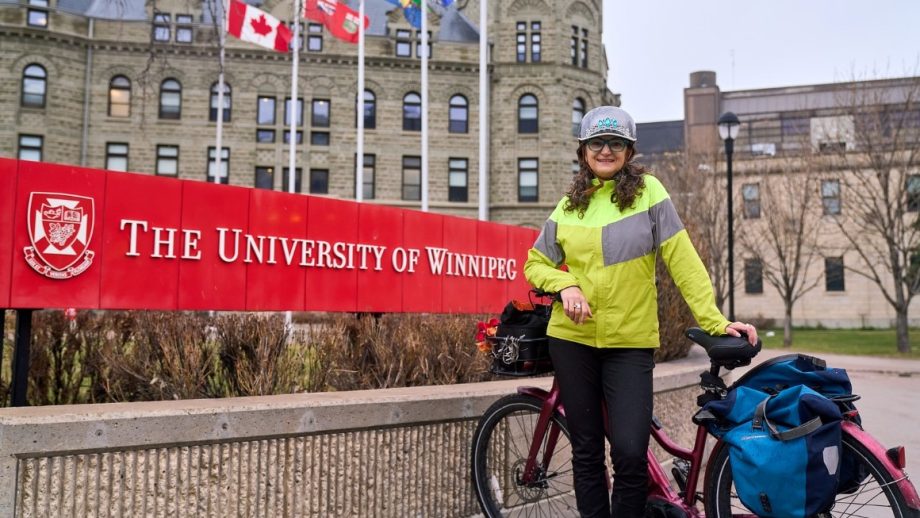WINNIPEG, MB – More than 500 people in Winnipeg who are homeless and living with a mental illness are being recruited to participate in Canada’s largest-ever study on the issue. The Winnipeg At Home project is aimed at providing people with stable, long-term housing and supports, with particular attention to the Aboriginal population. Using a $3.75 million grant provided by the Mental Health Commission of Canada The University of Winnipeg’s Institute of Urban Studies (IUS) and the University of Manitoba’s Departments of Psychiatry and Community Health Sciences form the core research team.
The At Home/ Chez Soi Project was launched concurrently today in the other five participating cities: Winnipeg, Toronto, Moncton, Vancouver and Montreal.
The Winnipeg At Home Project will result in 300 people presently homeless being offered housing in neighbourhoods throughout Winnipeg. Those with highest needs will have access to 24 hour support.
“The University of Winnipeg is committed to community learning and community-based research that has a real and lasting impact on the lives of people in our neighbourhood, said Lloyd Axworthy, President and Vice-Chancellor, UWinnipeg. “This partnership with the Mental Health Commission of Canada and front-line agencies is unique in that it is the people who are homeless who are teaching us, telling us what they need, not the other way around. Our role is to listen, and in a respectful way, collect data that can inform public policy decisions.”
“The Institute of Urban Studies has a 40-year history of conducting relevant studies that places people with lived-experience at the core of social research,” said Jino Distasio, IUS Director. “Nobody wants to see those without shelter or supportive service going hungry, cold and trying to fend for themselves. A national study of this magnitude can allow us, collectively, to find a better, more holistic way to support those who are most vulnerable in our community. At the end of the day, it will be a good thing to see more than 1,000 Canadians in stable housing, surrounded by the supports they need.”
Local estimates contend that 70% of the homeless population in Winnipeg is Aboriginal. The Winnipeg research team will work in partnership and cooperation with three primary agencies that will deliver a “Housing First” approach (a focus on providing housing, then offering necessary services and supports): Mount Carmel Clinic, Ma Mawi Chi Itata Centre and the Aboriginal Health and Wellness Centre. The project team is supported and guided by the advice of an Urban Aboriginal Lens Committee consisting of community elders and cultural teachers.
The overall intent of the four-year demonstration project is to test and assess whether a proven housing intervention is effective in the Canadian context, with the ultimate goal to work toward long term sustainability.
“Many cities, including New York, have definitively concluded that not only is this an effective intervention, with success rates in excess of 80%, but it is also a cost effective measure,” said Distasio.
FOR MORE INFORMATION
Diane Poulin, Communications Officer
P: 204.988.7135, E: d.poulin@uwinnipeg.ca




